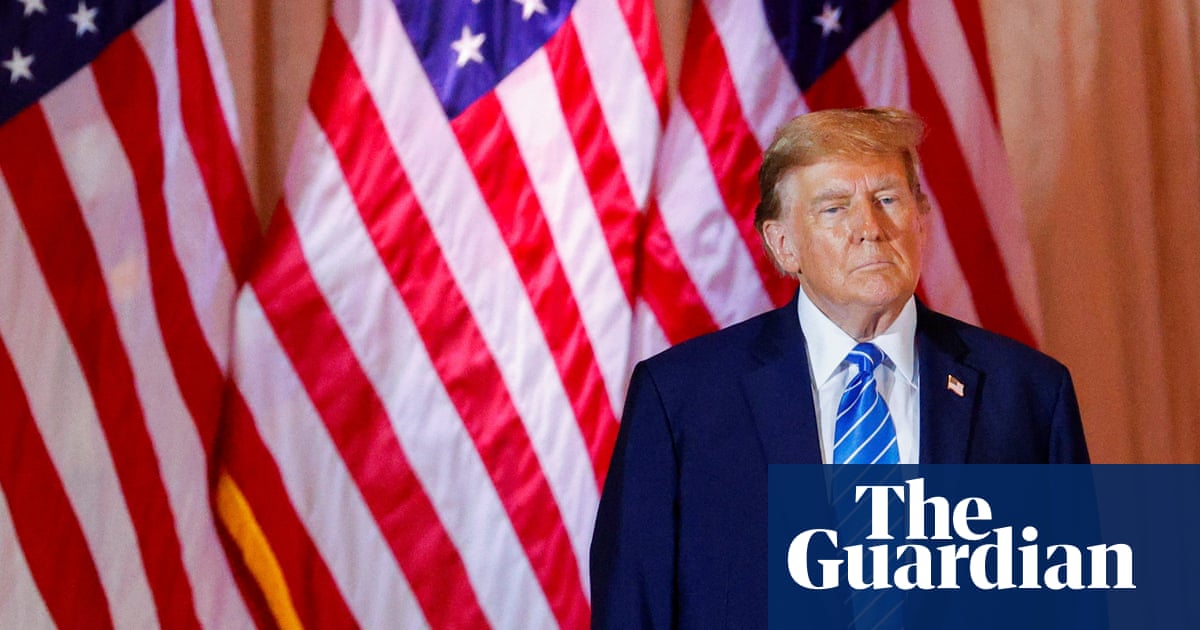On the docket: Judge Cannon v David Harbach
The tense interactions between judge Aileen Cannon and special counsel prosecutors in Donald Trump’s case over retaining classified documents came to a head this week when she again reprimanded one of the lead prosecutors on Monday for his tone.
We have reported for months about Cannon’s hostility to special-counsel prosecutors, but the recent stretch of hearings has also made clear how often they also shoot themselves in the foot.
Cannon is perhaps one of the easier judges to read at hearings, because she tends to ask questions only when she is skeptical of a position being advanced, whether by Trump’s lawyers or by prosecutors.
But David Harbach, one of the lead special-counsel prosecutors, has either found it difficult to read Cannon through his increasing frustration with the documents case, has become more interested in snapping at Cannon, or does not realize when he engages in self-sabotage.
The fraught nature of their relationship does not appear to have led Cannon to make rulings to punish his demeanor. But the testy relationship has the potential to become a larger problem for the special counsel’s team as the case proceeds.
If Cannon continues to be skeptical of prosecutors – she has a tense relationship with the deputy special counsel Jay Bratt as well as Harbach – it could become a manifest disadvantage for the special counsel if the case makes it to trial. Judges are human, too.
And while the tense interactions between Cannon and Harbach are difficult to describe in news reports because they are subtle, it exploded into plain view this week when she scolded Harbach – and when Harbach was inexplicably unable to take the win on Tuesday.
The hearing on Tuesday centered on Trump’s motion that asked her to toss out the evidence the FBI seized when they searched Mar-a-Lago in August 2022, including the 32 classified documents Trump was charged with illegally retaining after he left the White House.
By the end of the hearing, it was clear Cannon would deny Trump’s motion. Prosecutors had their win. But Harbach could not help himself.
Harbach told Cannon he needed to make an important point and assured her he would be brief. He then jogged over to the lectern and, to everyone’s amazement, complained that Trump’s lawyers were trying to “hijack” hearings by raising tangential motions. “It’s not fair,” he protested.
Cannon seemed to look at him with disdain for continuing to make arguments. “There’s no hijacking going on,” Judge Cannon snapped back, cutting him off and telling him the hearing was about to end.
Fortunately for the special counsel’s team, Cannon appears to have a prosecutor she does get on with: assistant special counsel James Pearce.
At the hearing on Friday, as Cannon weighed a separate Trump motion seeking to have the indictment dismissed on grounds that the special counsel was unlawfully appointed, she almost smiled as Pearce argued appointing a special counsel was in the power of the US attorney general Merrick Garland.
after newsletter promotion
While the classified documents case almost certainly will not go to trial any time soon, the special counsel team could shortly figure out whether they need to be ready to take their other criminal case against Trump, over his efforts to overturn the 2020 election results, to a jury before November.
The US supreme court has scheduled several more days to hand down decisions, including on the extent of Trump’s immunity from prosecution. The justices are expected to say Trump receives some immunity for “official acts”, but the question is how they will separate that from private conduct.
Depending on how the supreme court remands the case to a lower court – whether it goes to the US district judge Tanya Chutkan or the US court of appeals for the DC circuit – and what test it instructs the lower court to apply, there is a small window for a trial to start in late September.
At least that’s what I’m hearing from my justice department sources.
In other news
Judge Juan Merchan, the New York judge who presided over Trump’s hush-money trial, has partially lifted a gag order that has been hanging over the former president since he was convicted of the accounting fraud charges last month.
Under the revised order, Trump is now free to criticize trial witnesses, who include Stormy Daniels and his former lawyer Michael Cohen, but must maintain restrictions on his comments about individual prosecutors and others involved in the case.

